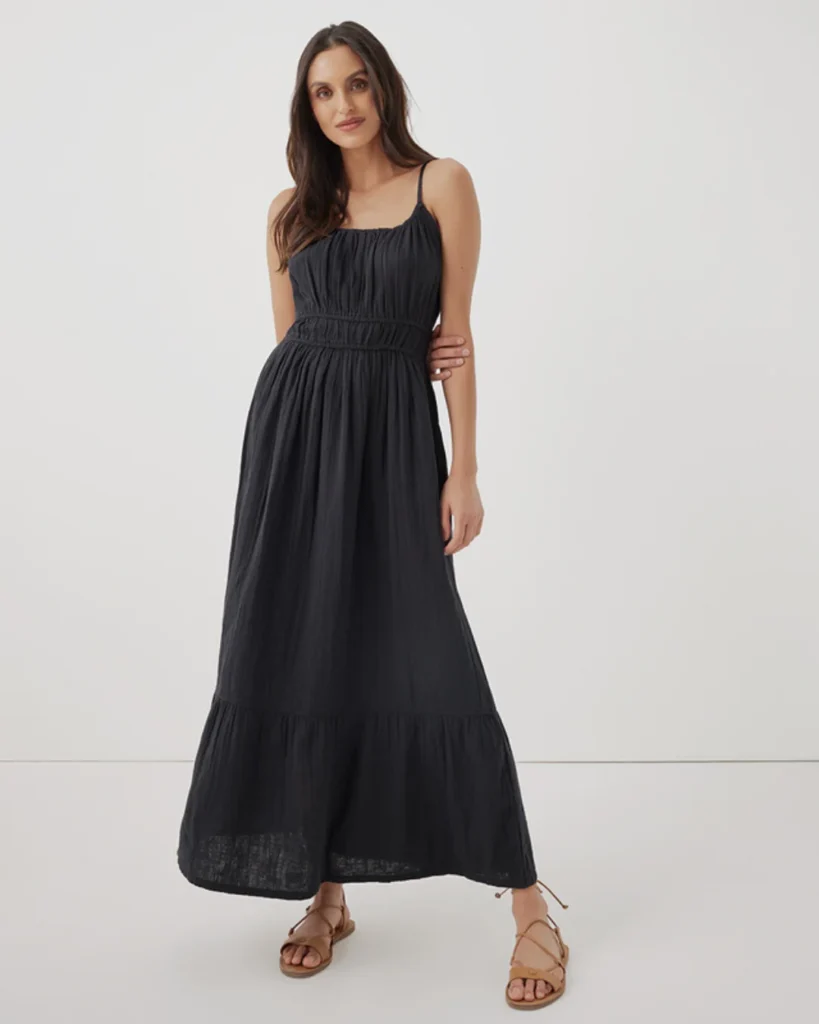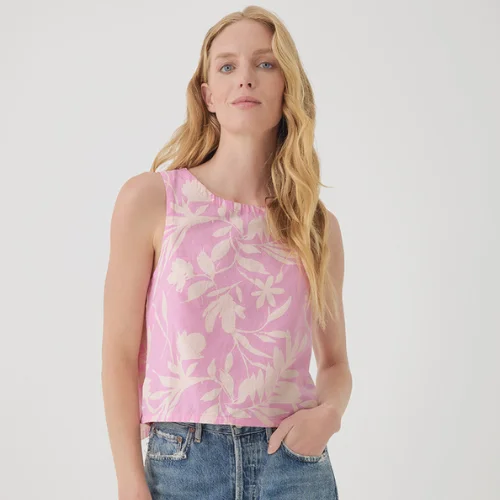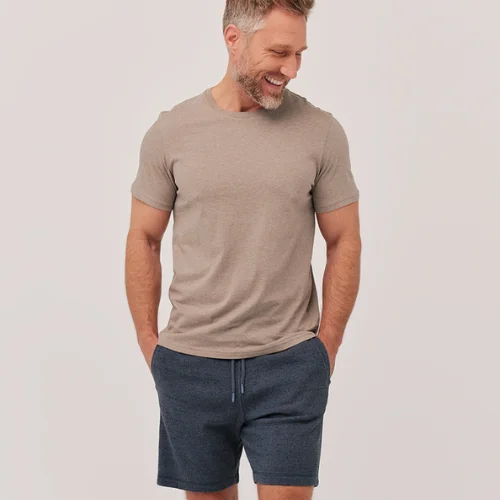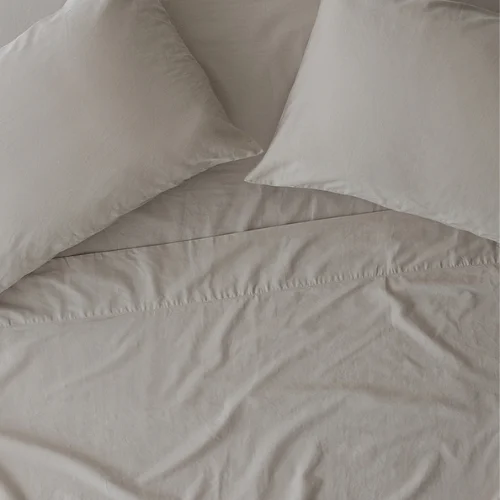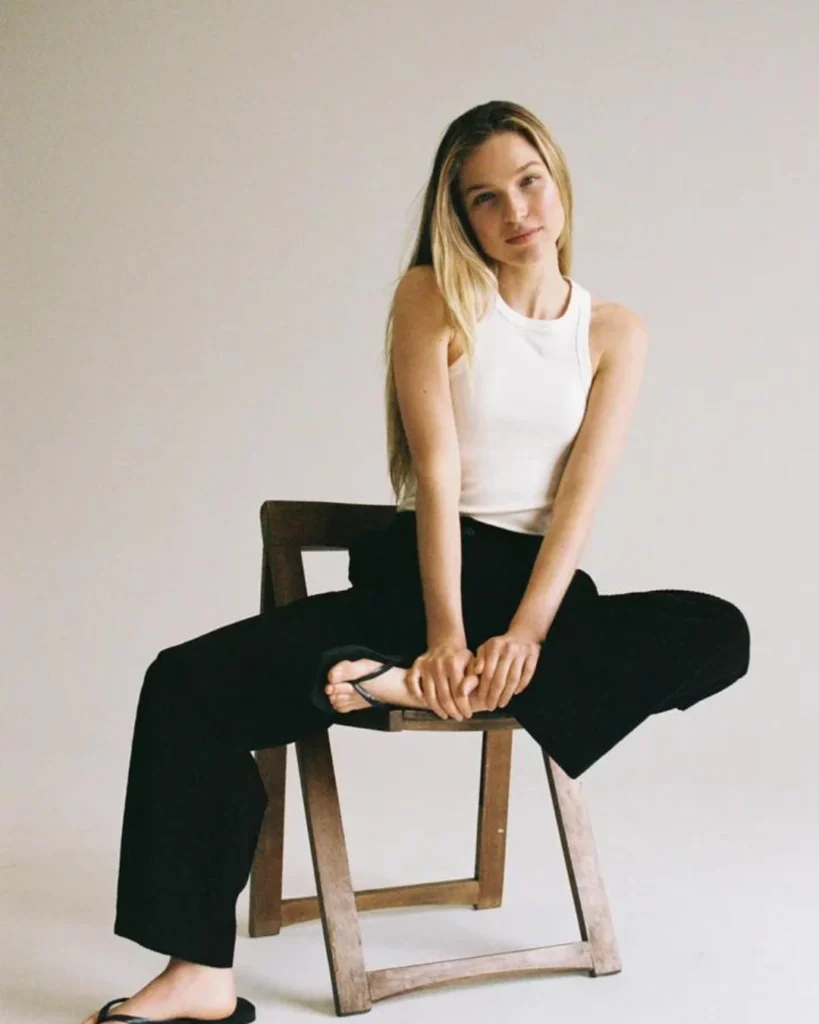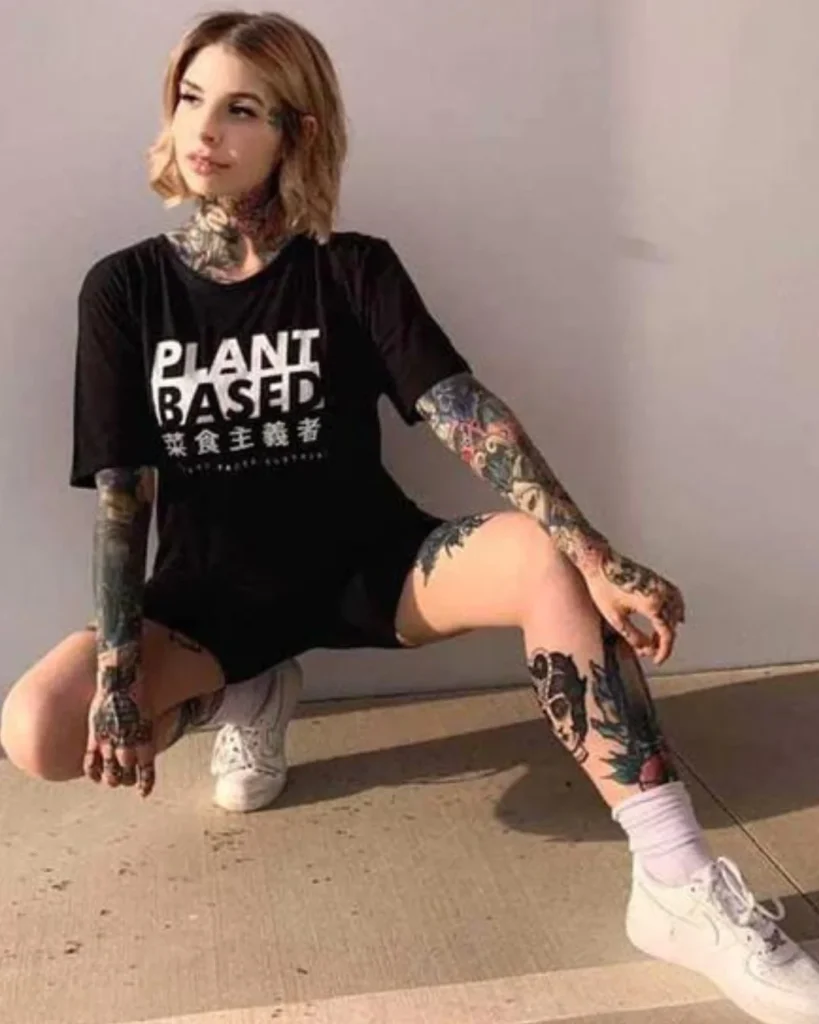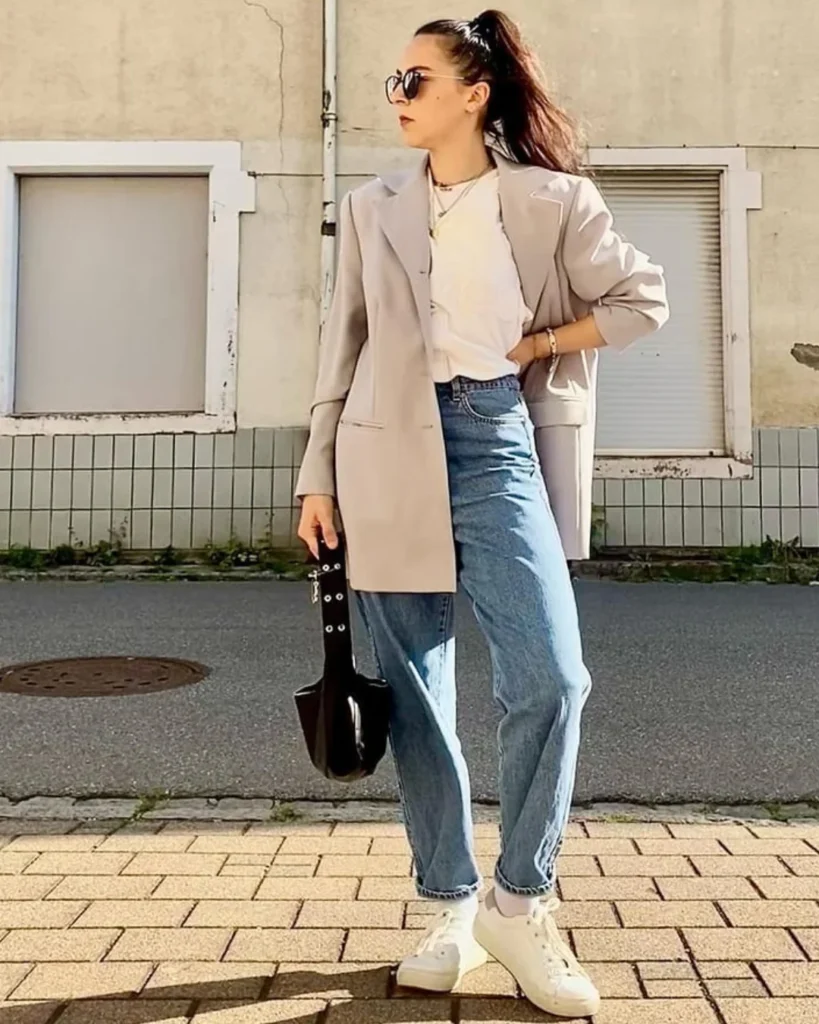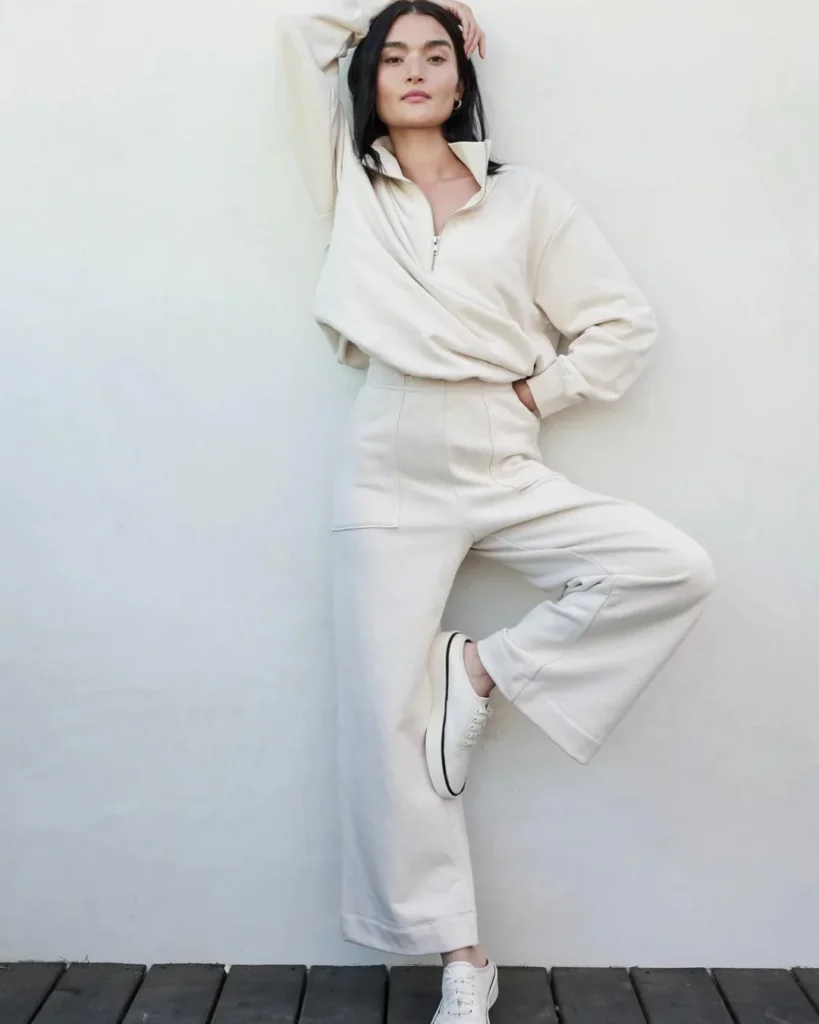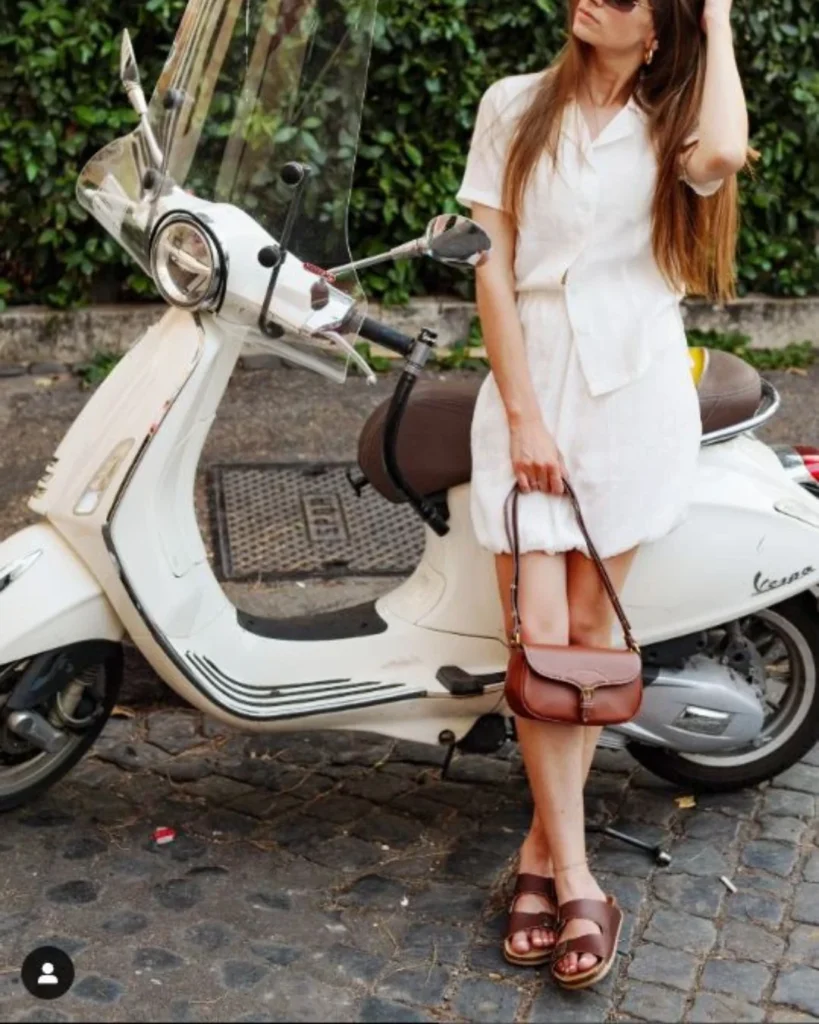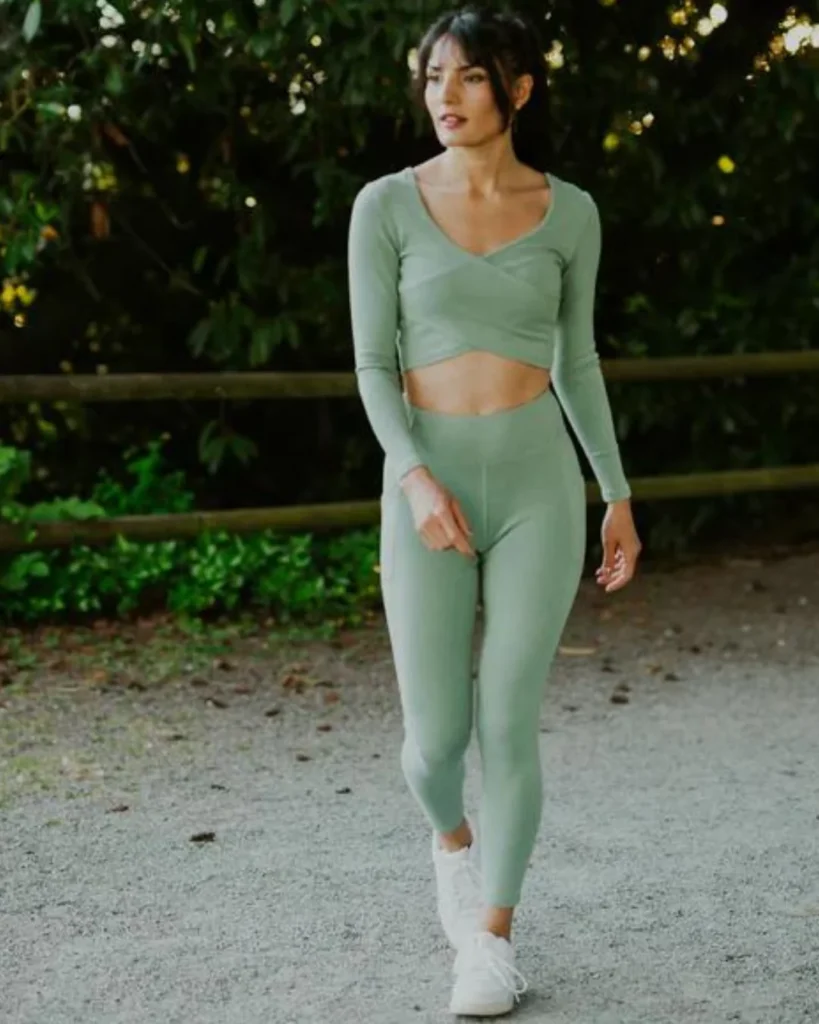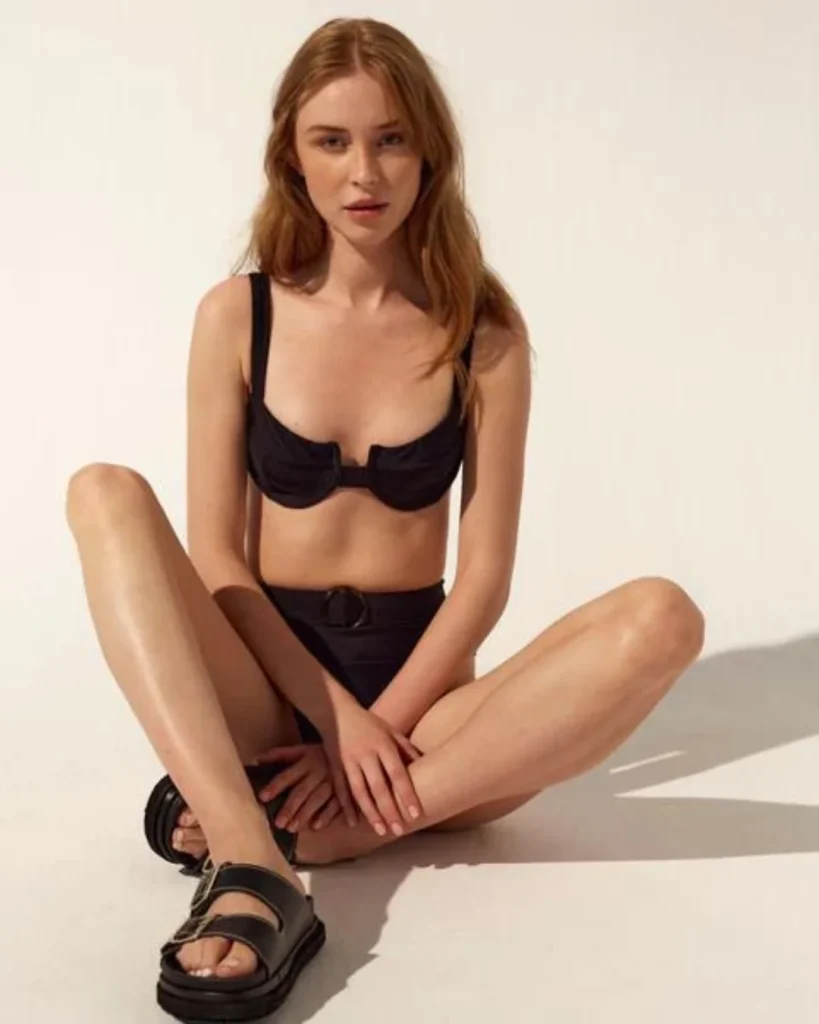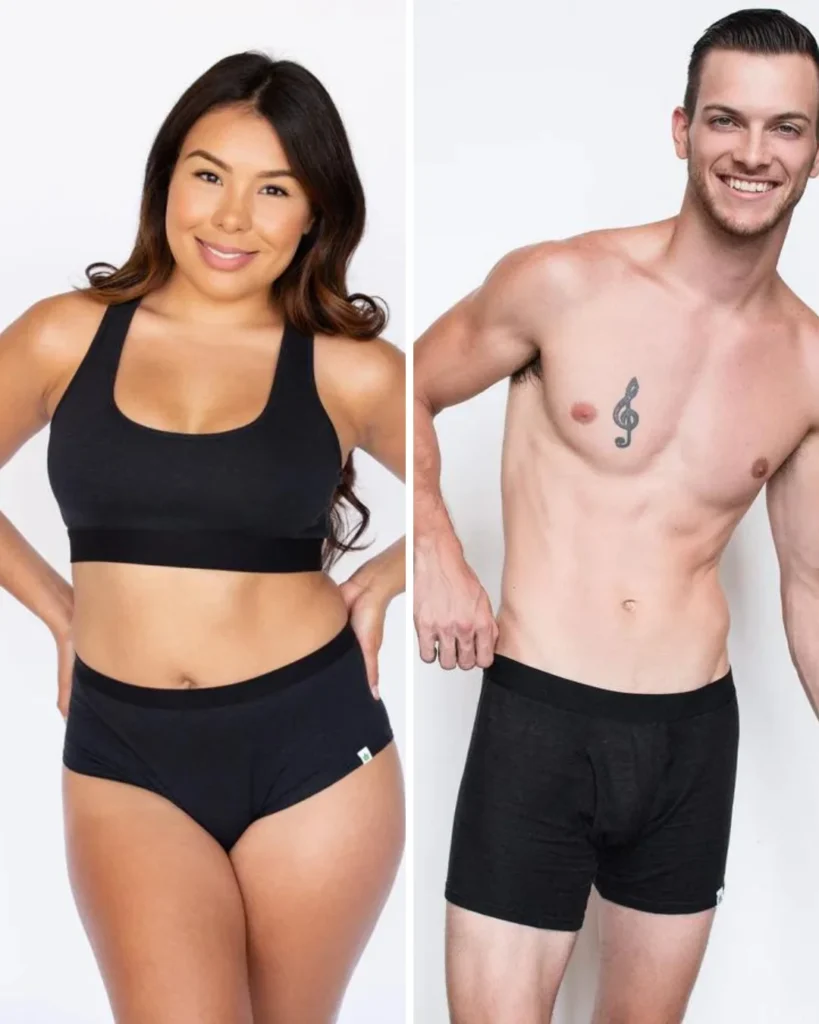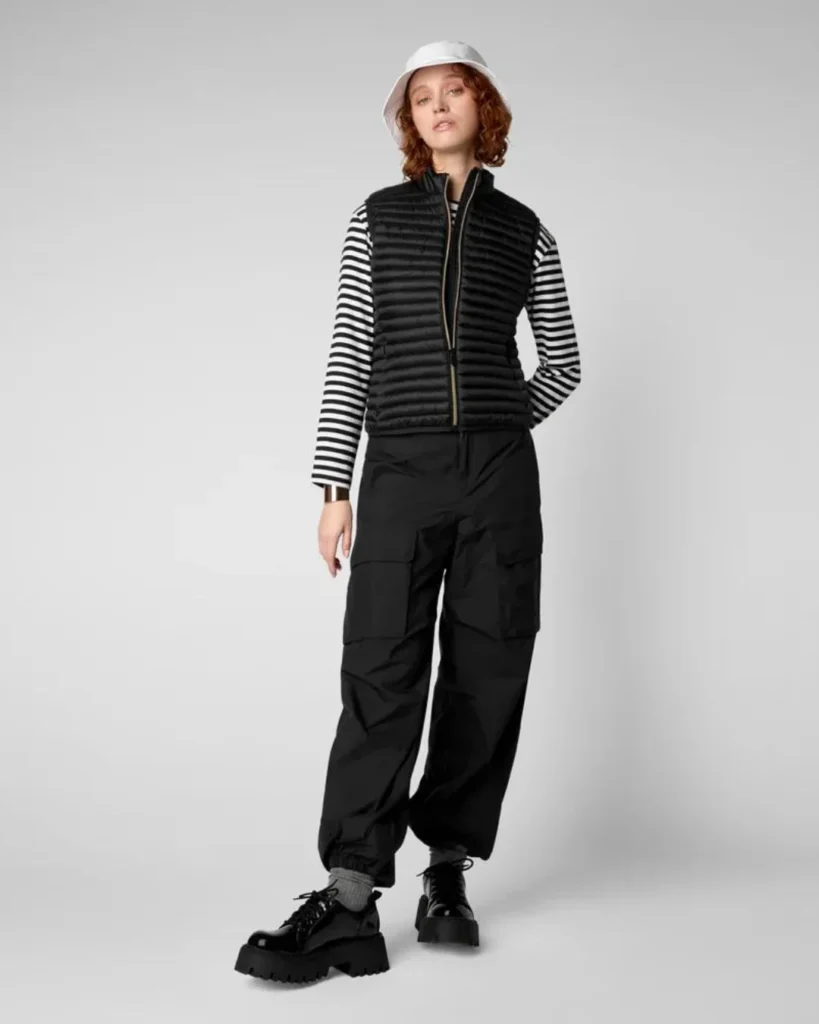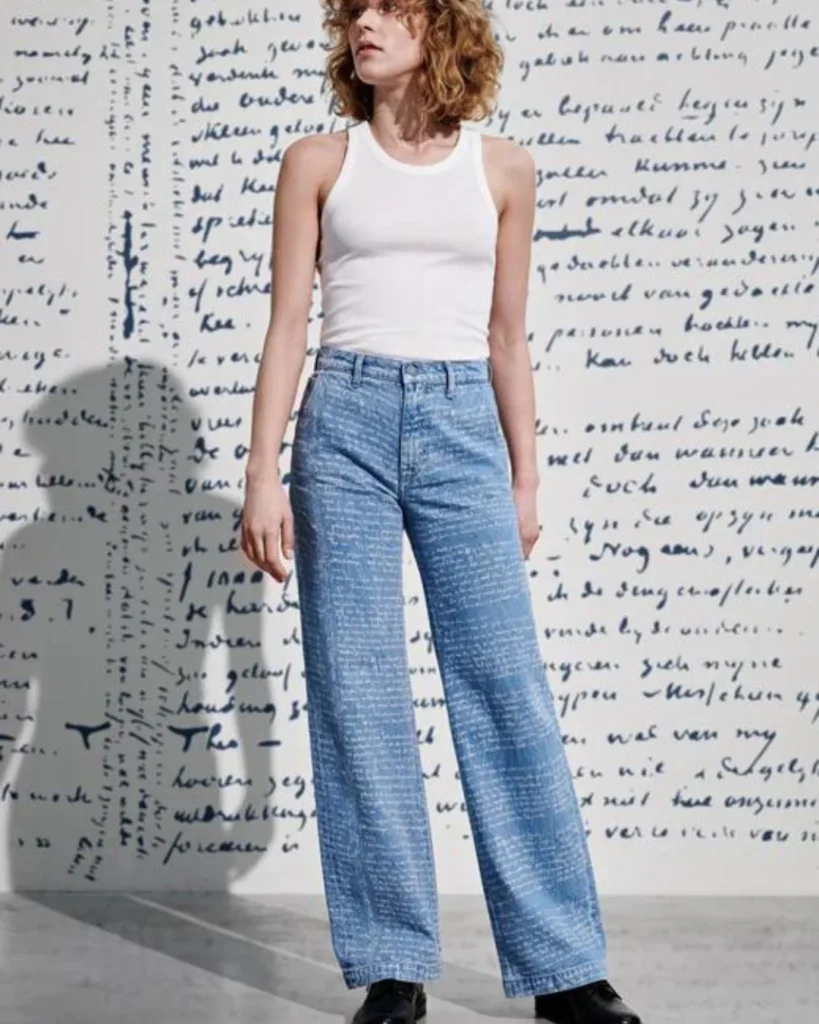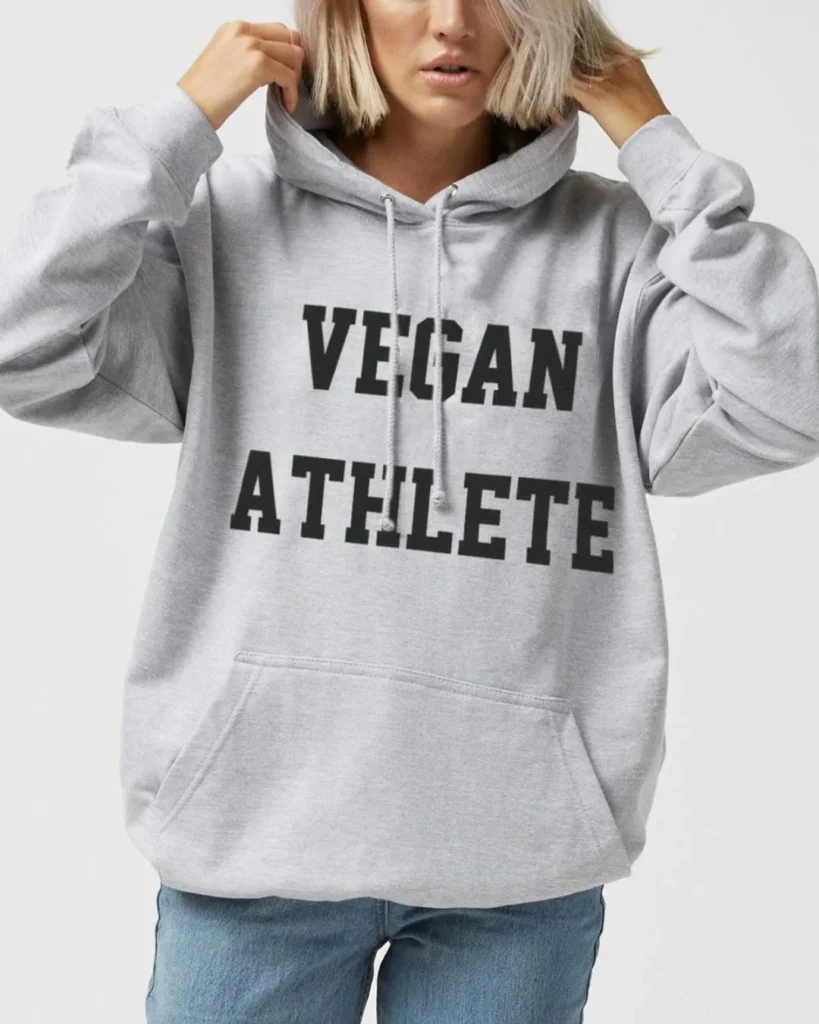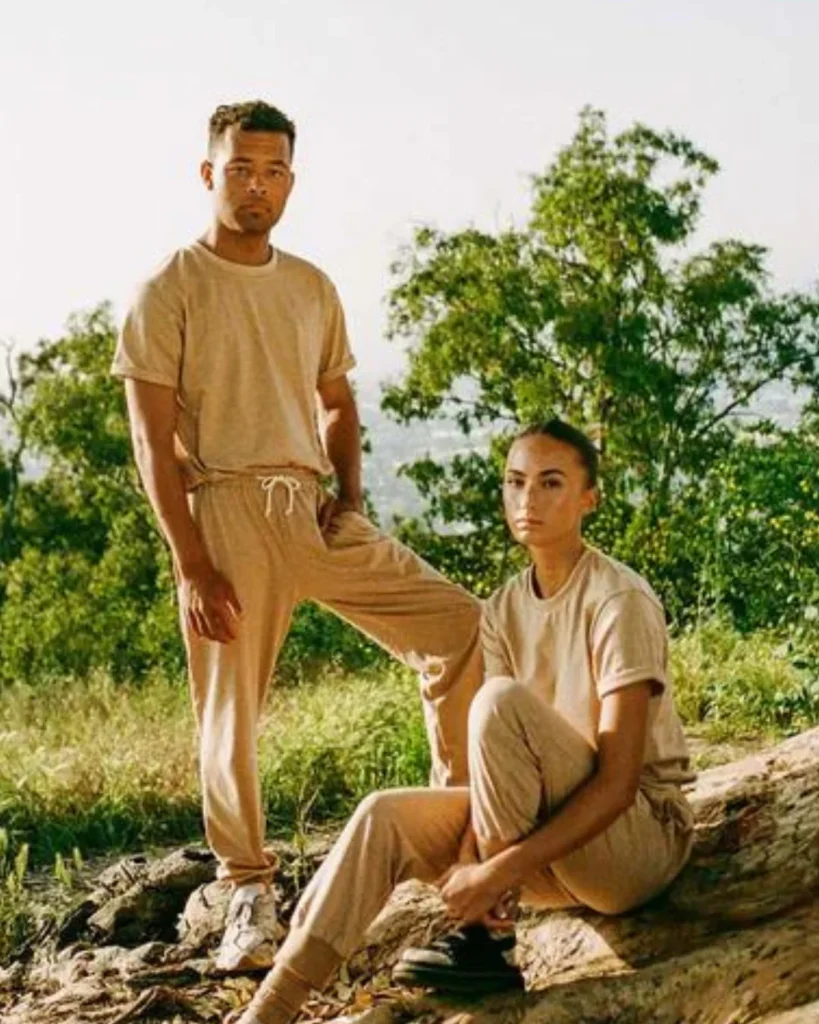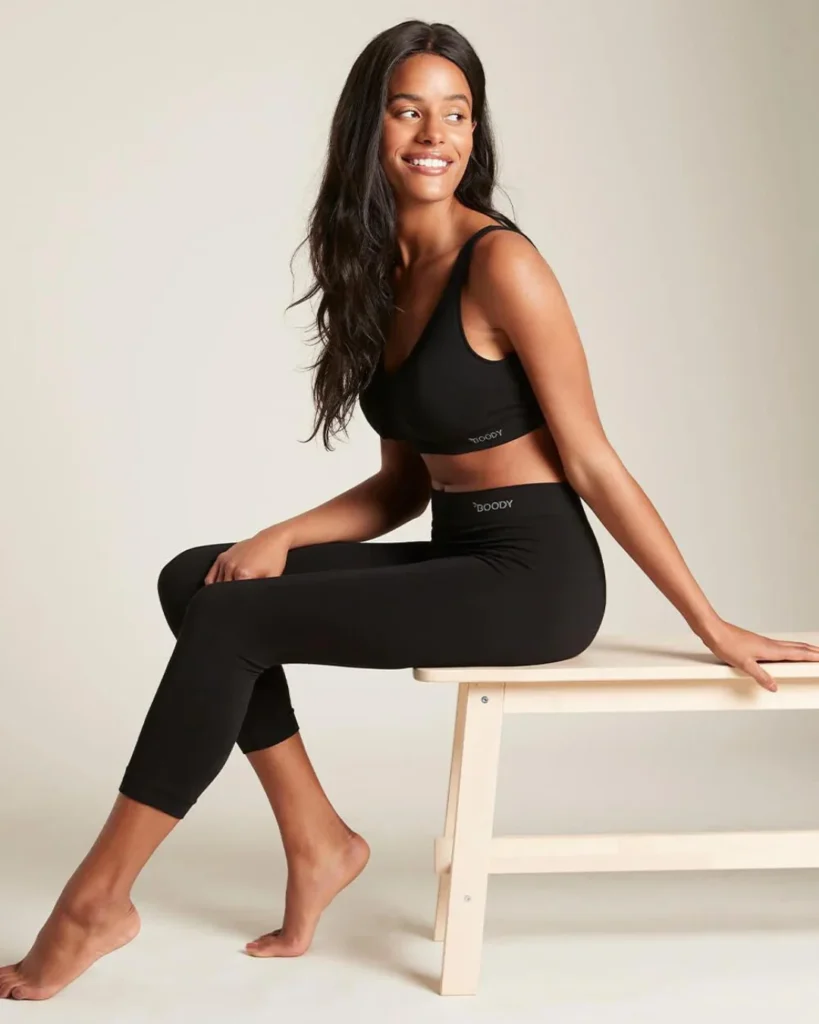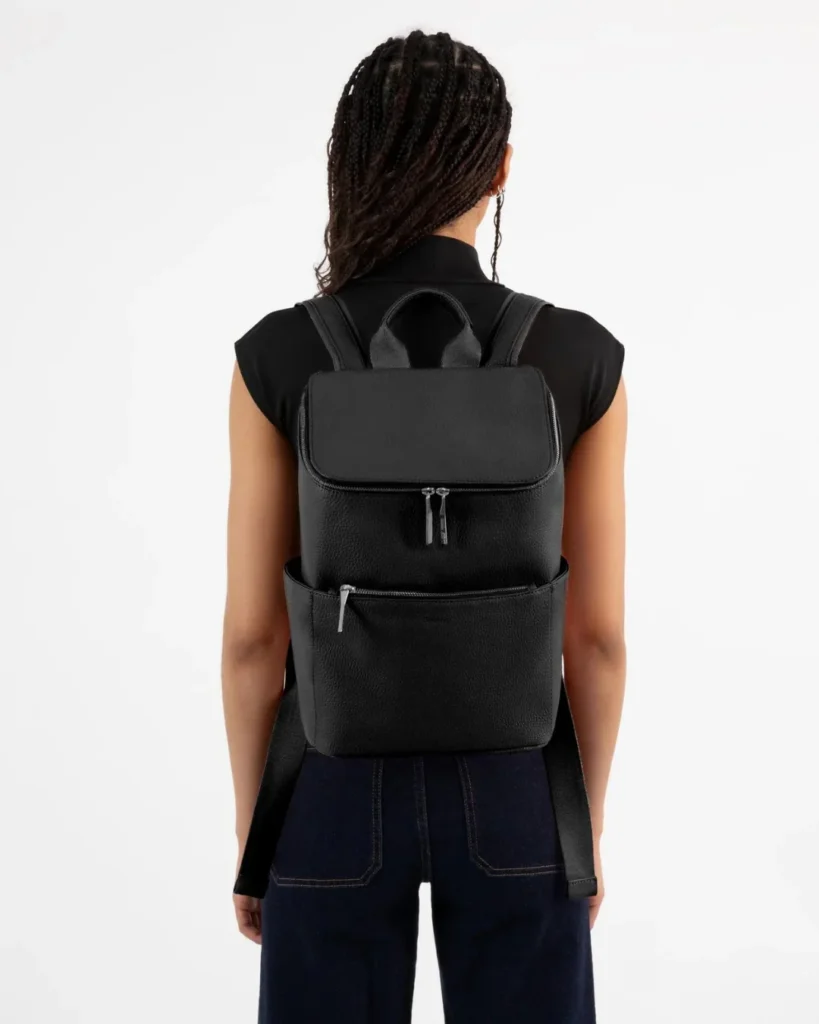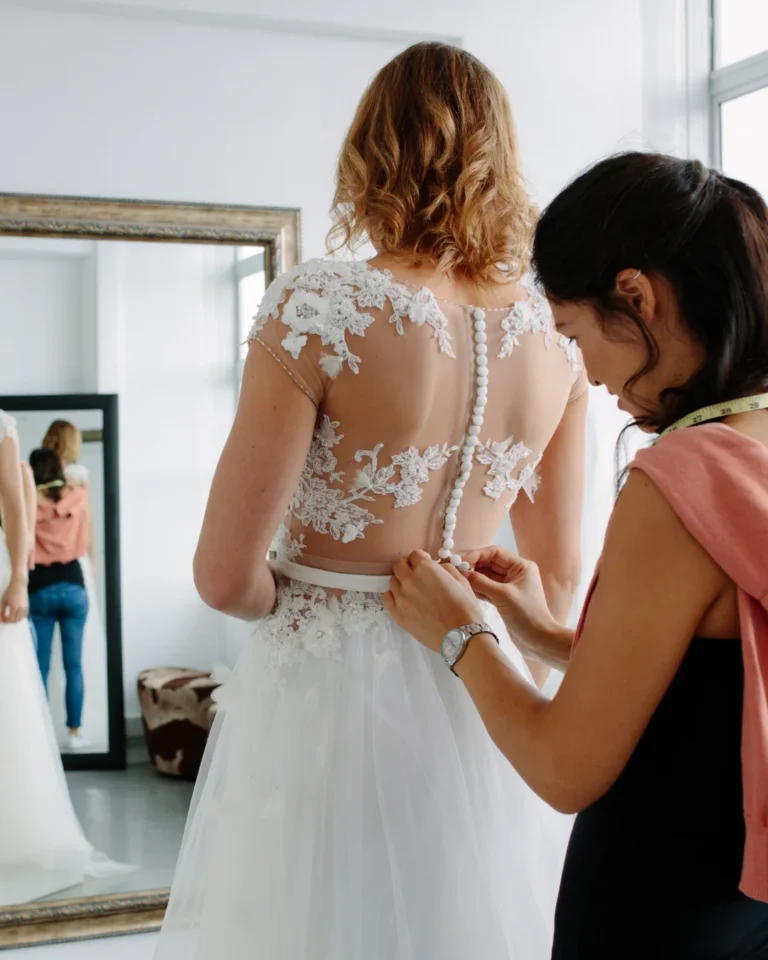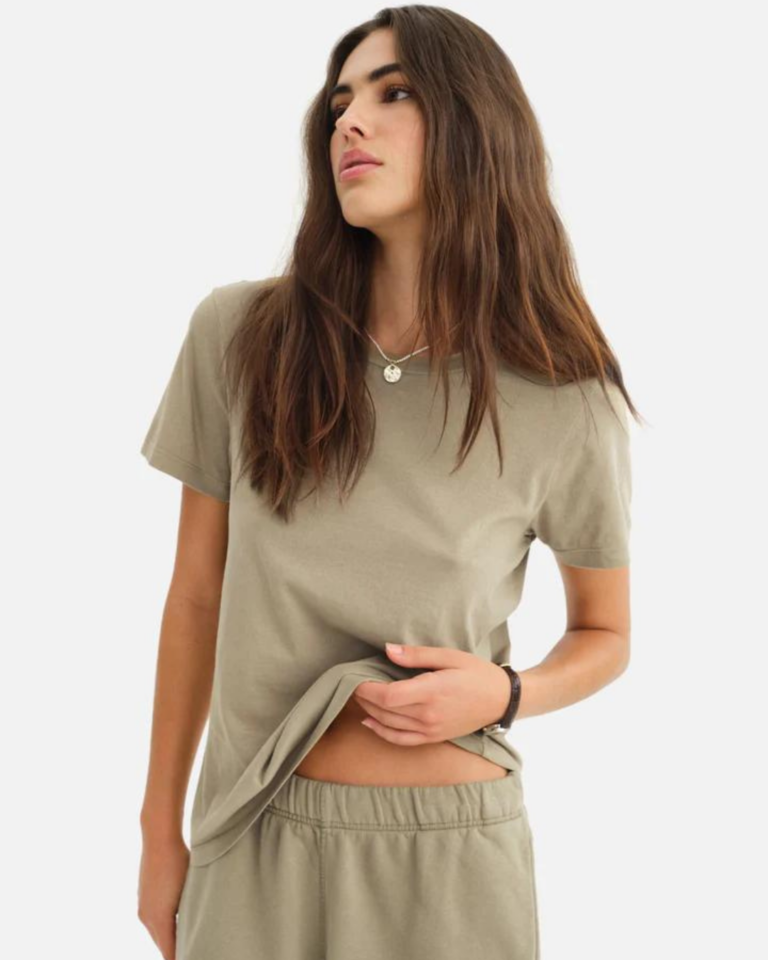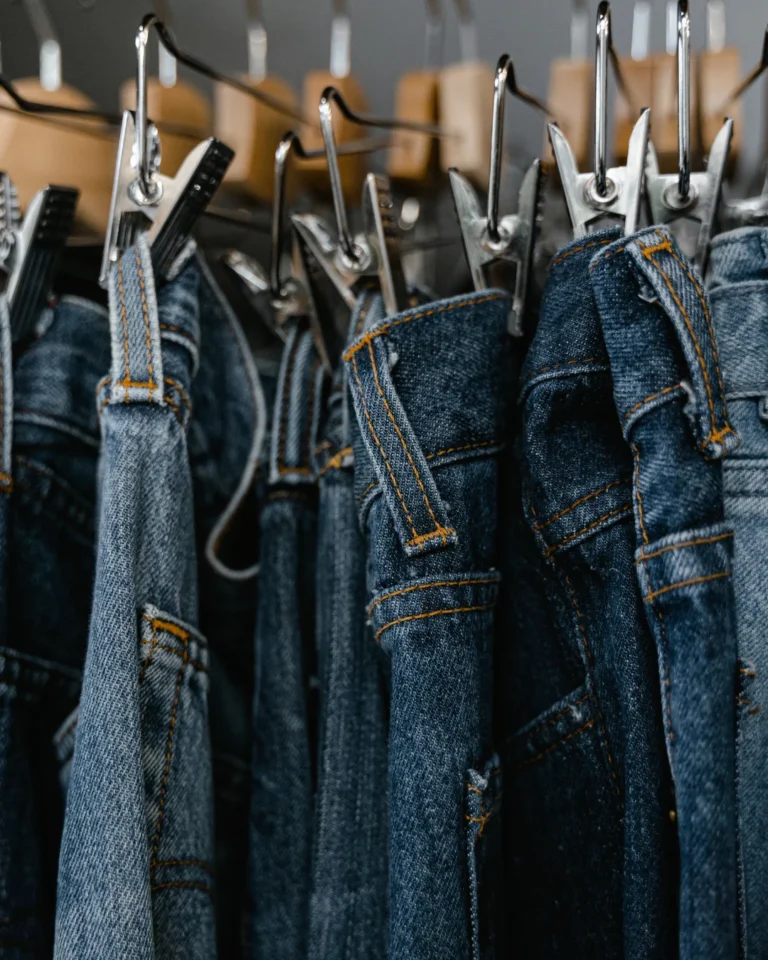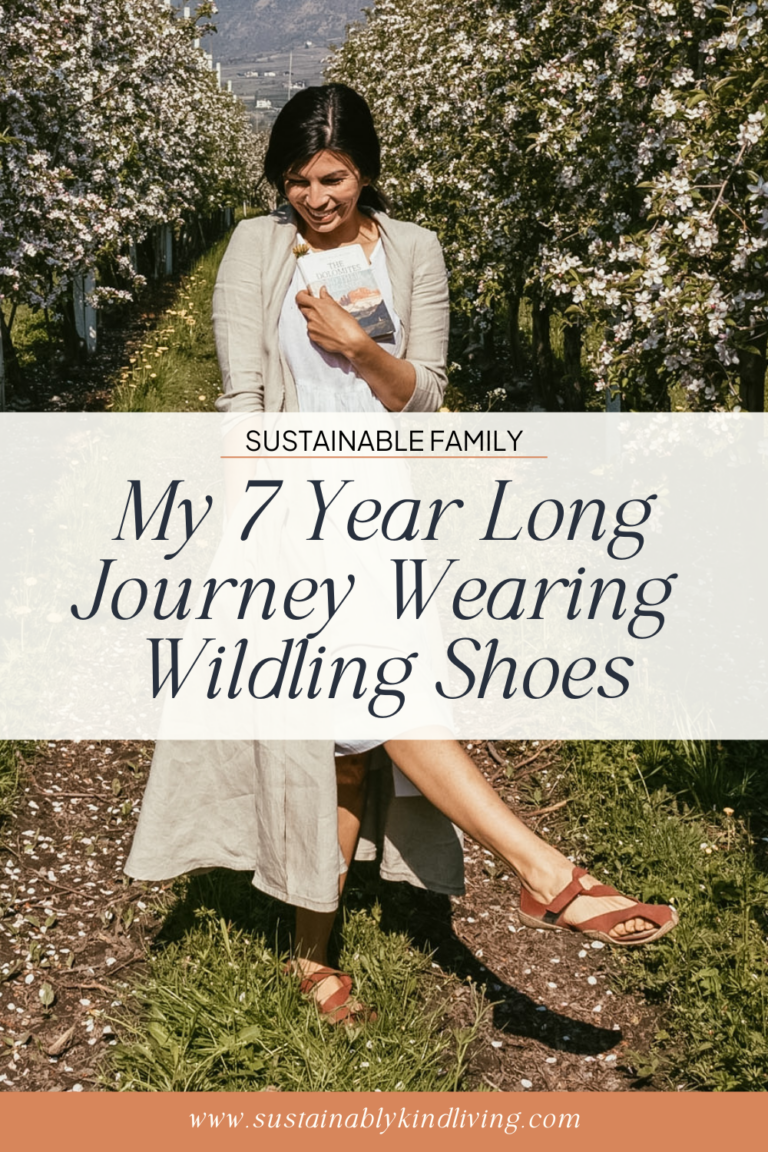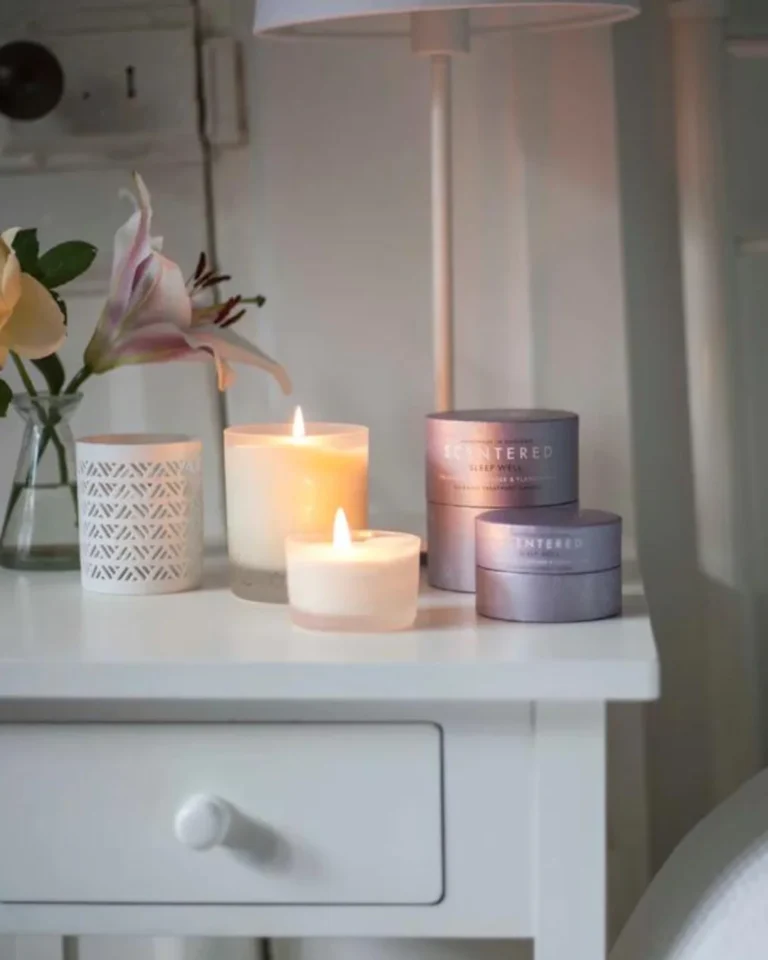SKL is reader supported. When you buy through links on our site, we may earn affiliate commission. Learn more here.
Looking for the best vegan fashion brands in 2024? We picked the top affordable vegan clothing brands to help you upgrade your wardrobe ethically and consciously.
After becoming aware of the widespread abuse of animals for the sake of looking good, it only made sense to help shed light on the animal cruelty, environmental impact, and labor abuses in this $444.17 billion industry.
How We Researched and Rated the Best Vegan Fashion Brands
- Certified vegan brands: We scoured reputable sources including the PETA-approved clothing brands list and had direct communications with companies themselves to guarantee that all options abstain from animal-derived materials such as leather, wool, and silk.
- Sustainability initiatives: We took into consideration each brand’s sustainability initiatives, and assessed their use of eco-friendly fabrics (such as organic cotton and recycled fibers), commitment to reducing carbon footprints, and adherence to fair labor practices. Brands that were 100% transparent received higher commendations.
Before you purchase from one of the hundreds of vegan-friendly fashion brands out there, it’s important to understand that while vegan clothing is a step in the right direction, it doesn’t automatically equate to sustainability.
That’s why we solely picked the most sustainable vegan clothes brands, backed by numerous certifications.
In this guide, we’ll share the harsh realities behind popular non-vegan textiles like leather, fur, wool, silk, and down; explain the environmental and ethical issues associated with these materials and why it’s essential to seek ethical alternatives from vegan clothing brands that care for the animals and the planet.
What is Vegan-Friendly Fashion?
Simply put, vegan-friendly fashion refers to clothes, shoes, and accessories made without any animal-derived materials such as real leather, wool, silk, fur, or down. Instead, it uses innovative and, in most cases, sustainable materials that don’t harm animals.
These vegan clothing brands may also employ eco-friendly manufacturing methods and responsible sourcing to minimize their environmental impact. It’s about creating a positive impact on all fronts – for animals, the environment, and people.
Granted, at some point in our lives, we’ve all wished for that gorgeous leather bag or stunning pair of shiny leather boots. After all, celebrities and designers have been pushing fur and leather accessories for dozens of years.
But, in 2024, when all the stats and horrific reports are laid out for the whole world to see, is there really an excuse?
The allure of leather, fur, and silk comes at a VERY high cost. Annually, the fashion industry slaughters approximately 430 million cows to meet consumer demand for leather goods. Unsurprisingly, the cattle industry is one of the primary contributors to deforestation, particularly in the Amazon rainforest, where land is cleared to make way for grazing.
Animals raised for fur, such as minks, foxes, and rabbits, are forced to endure appalling conditions in fur farms, confined in cramped, filthy cages, and subjected to brutal killing methods to preserve their pelts.
Of course, modern slavery in leather supply chains is not something uncommon. Just like in fast fashion factories, in countries like Pakistan, Bangladesh, and India, labor laws are limited or non-existent, and are notorious for their poor working conditions.
Luckily, there is light at the end of the very dark tunnel. Vogue reported that the stock of vegan fashion products increased by 258% across the UK and the US.
As the Vegan Society pointed out in their “Rise of Vegan Fashion” report, 54.9% of the responders said that they were either interested in purchasing or already owned something made from plant-based leather.
73.5% said yes, they would be willing to pay more for plant-based leather compared to animal leather.
Which Fashion Materials Are Not Vegan?
Real Leather
Shockingly, more than 1 billion animals are killed worldwide for the leather trade every single year! Most leather production is incredibly resource-intensive and environmentally damaging.
The process involves raising livestock, which contributes significantly to greenhouse gas emissions, deforestation, and water consumption. To put this into perspective, one pair of cow skin leather boots creates 66 kg of CO2e. This means that cow skin leather then has a climate impact nearly 7 times greater than synthetic leather!
In some cases, leather is sourced from exotic animals like crocodiles and snakes, where the cruelty is even more pronounced due to the brutal methods used to kill them. I was shocked to find out that Australia slaughters just over 150,000 crocodiles annually, and fuels 60% of the world’s crocodile skin trade. That’s hardly a surprise given that 3-4 crocodiles are required to make just one Hermes Birkin bag.
Fur
The fur industry is notorious for its cruelty. Currently, 85 percent of the fur industry’s skins come from animals living captive in fur factory farms, according to PETA. Animals such as mink, foxes, rabbits, and raccoons are bred and kept in cramped, filthy cages where they suffer from stress, injuries, and diseases.
Recently, a Russian facility was exposed for breeding and slaughtering animals for their fur. 700 cages imprisoned 2,000 animals in just a single shed. As I was looking into the benefits of solely trusting vegan fashion brands, I found another exposure, published by the United Nations stating that at least 1 billion rabbits are killed each year for their fur.
Wool
The issues with sheep farming and wool harvesting are very complex. In one single year, more than 1.2 billion sheep were farmed for wool.
Sheep farming for wool production involves cruel practices that cause significant distress and harm to the animals. One such practice you might have heard of is mulesing, where strips of skin are cut away from the sheep’s breech to prevent flystrike. This downright cruel procedure is usually done without any pain relief.
Silk
Silk is produced from the cocoons of silkworms, primarily Bombyx mori. The traditional method of silk production involves boiling the cocoons to extract the silk fibers, which kills the pupae inside. This process is repeated millions of times to produce the silk used in clothing and textiles.
An industry as big as this one cannot come without worker exploitation. Recently, India’s silk trade was exposed for forcing children as years old to work inside the factories and workshops that produce silk thread.
Down and Feathers
Down, the soft layer of feathers closest to a bird’s skin is prized for its insulating properties. However, the collection process is VERY cruel. It’s estimated that over 600 million geese and up to 3 billion ducks are raised and slaughtered globally on industrial farms each year.
Birds, especially ducks and geese, may be subjected to live plucking, where feathers are torn from their bodies while they are still alive. PETA released footage of workers ripping live geese’s feathers out a few years ago. It’s disturbing and eye-opening, to say the least. This is repeated multiple times throughout the birds’ lives, causing immense pain and trauma.
15 Best Vegan Clothing Brands in 2024
We previously named Pact as one of the top 50 brands that fight against fast fashion because we truly believe in their vision and code of conduct.
Much like most of the best vegan fashion brands on this list, Pact opts for GOTS-certified organic cotton to create plus-size-friendly basics, including tees, tank tops, bottoms, sleepwear, underwear, and even comfortable maternity wear, all sewn in Fair Trade Certified factories.
Last, but not least, we also need to talk about the brand’s Give Back Box® program which allows you to deliver your gently used clothes to nonprofits that need them the most.
Price
From $15+
Ethics
GOTS Certified, Fair Trade USA, Carbon Neutral Certified, sustainable materials, ethical manufacturing, climate-friendly, SimpliZero
Size Range
XS – 2XL
Honestly, I’m not sure I can describe how much I love my LA Relaxed basics. This vegan-friendly fashion brand offers an extensive range of organic clothing and basics, all ethically crafted in Los Angeles.
As a woman-owned company, LA Relaxed solely works with BLUESIGN-certified local dye houses to guarantee that their dyes are safe for both people and the planet, unlike the harmful chemicals often used in fast fashion.
Their collection includes tops, bottoms, and sweaters made from organic cotton, Tencel, and linen, produced in limited runs to minimize waste and maximize the use of raw materials.
Price
From $47+
ethics
GOTS Certified, Fair Trade USA, Certified Plant Based Fibers, local sourcing
size range
XS-XL
I had the pleasure of trying a few wardrobe staples from Plant Faced Clothing’s vegan clothes lineup and I couldn’t be more happy with the quality and aesthetics.
The company specializes in creating GOTS-certified, high-quality leisurewear responsibly in factories certified by the Worldwide Responsible Accredited Production (WRAP) or the Fair Wear Foundation.
This means that fair labor practices are guaranteed! The designs are cool and modern, featuring bold graphics and beautiful colorways.
Also, as one of the top PETA-approved clothing brands in 2024, Plant Faced takes its commitment to the environment seriously by ditching plastic entirely. Instead, they use 100% compostable and biodegradable paper mailers for their packaging.
Price
From $50+
ethics
PETA-approved and GOTS-certified vegan clothes, made in WRAP or Fair Wear Foundation factories, sustainable packaging
size range
XS-XXL
Will’s Vegan Store is at the top of our list of the best vegan fashion brands in 2024 because it offers a wide range of men’s and women’s shoes, boots, bags, knitwear, clothing, and accessories, all within an affordable price range.
The company is based in London, England, and has made all of its products in Italy and Portugal since 2012. They use bio-based leather, sustainable and recycled materials, and ensure their packaging is plastic-free.
Plus, their clothing, shoes, and accessories are fully recyclable and biodegradable all while holding the Oeko-Tex® certificate.
To top it all off, the cruelty-free clothing brand is PETA-approved and Vegan Society-registered, so you can rest knowing that no animals are harmed in the process.
Price
From $69+
ethics
Certified Sustainable Vegan Leather, Made In Small Batches In Europe, Carbon Neutral, Plastic-Free Packaging, Solar Energy, Fair Wages
size range
XS–XXL
Mate The Label is an SKL favorite! We’ve been wearing their sustainable loungewear and organic activewear for years.
The vegan-friendly fashion brand uses top-quality non-toxic, natural, and organic materials like organic cotton jersey, Tencel, and linen to create kid’s clothing, as well as menswear and womenswear locally in Angeles, California.
You won’t find any chemicals or toxic dyes hiding in the seams – every! To further minimize textile waste, the B-certified corporation Mate The Label champions slower production schedules.
Lastly, all orders are shipped in recycled packaging.
Price
From $46+
ethics
Organic materials such as cotton, linen, Tencel, B-certified corporation, made sustainably in Los Angeles, women-owned, Climate Neutral Certified
size range
XS-3XL
For a truly sustainable and overall good vegan clothing brand for chic and timeless shoes and accessories, look no further than Noah Italian Vegan Shoes.
This PETA-approved company offers some of the finest vegan leather boots, sandals, sneakers, flats, business shoes, and slippers, all entirely handmade by skilled artisans in Italy.
What’s more, every pair meets Fair Trade and ethical standards. Instead of relying on PVC, Noah opts for superior alternatives like microsuede (similar to suede leather), micronappa (resembling Nappa leather), rubber, and cork.
With Noah, you truly get it all—sophistication, functionality, and a clear conscience. With Noah, you truly get it all—sophistication, functionality, and a clear conscience.
Price
From $119+
Ethics
PETA Approved Vegan Leather, Handmade In Italy, Fair Wages, Toxic-Free
size range
USA 5-11, EU 35-42
Happy Earth’s organic cotton sweatpants have been in our sartorial rotation for years.
Their virtual shelves are packed with buttery-soft, sustainable t-shirts for both women and men featuring unique chest pocket designs and nature-inspired prints that are simply irresistible.
You can also find beautiful organic workout leggings, flow summer dresses, and an array of staples with a relaxed, comfy, all-gender fit.
Spoiler alert: you’ll fall in love with their beautiful, earthy prints.
What I love most about this affordable vegan clothing brand is that it prioritizes ethical production by partnering closely with a Fair Trade factory in India.
Price
From $72+
ethics
B-certified corporation, GOTS organic cotton, Fair Trade Certified, carbon-neutral, gives back, recycled materials for low-impact shipping
size range
XS-3XL
I first heard about Alohas while I was on the hunt for sustainable summer skirts, but what really got me hooked is their ultra-modern, women’s sandals.
The Spanish, vegan-friendly fashion brand follows a zero-waste, on-demand production model in Portugal where they crate gorgeous organic wardrobe staples, shoes, accessories, and swimwear from recycled nylon or recycled polyamide locally, linen, and organic cotton.
There is no dought in my mind that you’ll instantly fall in love with Aloha’s Mediterranean-inspired aesthetic and timeless designs.
Price
From $50+
Ethics
Designed in Barcelona & handcrafted in Alicante, fair wages, plant-based materials, recyclable packaging
size range
XS-XL
While they solely focused on producing hypoallergenic organic cotton underwear for women and men, WAMA is still technically a 100% vegan clothing brand. If you suffer from polyester allergy like me, you have to try these natural top-drawer staples.
WAMA’s products feature a blend of organic hemp and GOTS organic cotton, all ethically made in BSCI-certified factories in China.
Hemp is naturally antibacterial, anti-odor, and incredibly soft, making it one of the top natural fibers for hipsters, bikinis, thongs, and boy shorts—perfect for daily wear.
To top it all off, WAMA makes it easy to stock up on these essentials with discounted underwear packs of 3, 6, or 10 pieces, ensuring both comfort and value.
Price
From $24+
Ethics
OEKO-TEX® Certified, PETA Vegan Approved, Green America, fair wages & quality working environment, transparency
size range
XS-4XL
I know what you’re thinking – that’s a very unusual name for a sustainable vegan clothes brand.
Save The Duck is a B-Corp-certified Italian brand that uses recycled and an array of innovative materials to create high-performing outdoor clothing that has helped folks climb to the top of Mount Everest.
Their lineup includes everything from animal-free rain jackets, and puffer jackets, to ‘athleisure’ and swimwear.
Now, on to the really cool part: Save The Duck’s product comes with a Digital Product Passport that reveals every detail about your garment right on your smartphone.
You’ll get a clear view of the origins of the style and materials, including fabric and buttons, and comprehensive insights on certifications.
To top it all off, the company allows you to resell your pre-loved items on eBay directly from their Digital Product Passport to minimize waste and give new life to your pre-owned staples.
Price
From $49+
ethics
B-certified corporation, resell program, and supply partners are verified by amfori BSCI, SMETA, WRAP, and SA 8000, Bluesign® approved, GOTS certified, OEKO-TEX certified, gives back
size range
M -XXL
MUD Jeans is one of the most beloved vegan and cruelty-free clothing brands in Europe from you guessed it, sustainable jeans.
What sets Mud Jeans apart from other fashion brands is their dedication to creating figure-flattering denim using the principles of the circular economy.
Each pair is made from 40% recycled materials, including discarded jeans, and 60% organic cotton.
To put their environmental commitment into perspective, Mud Jeans uses just 477 liters of water per pair, a stark contrast to the industry standard of 7,000 liters.
With a variety of styles including skinny, flare, straight, and loose, and a range of washes created through a laser technique, this 100% vegan clothing brand makes it incredibly easy to find the perfect fit and style without compromising on sustainability.
Price
Varies (Buy €129,95 / Lease €10,80/month)
ethics
Organic cotton & recycled cotton, B Corporation, have the choice to lease clothing or purchase the item
size range
30-34
If you’re looking for the best vegan clothing brands in the UK, have a look at Vegan Outfitters and their super modern lineup of T-shirts, sweatshirts, hoodies, joggers, tanks, hats, trainers, and accessories.
What caught my eye is the many playful light-hearted puns and inspiring quotes that adorn most of their wardrobe basics. “Herbivore”, “Bee Kind”, and “ There is NO Planet B” are my absolute favorites.
The entire collection is ethically made in a WRAP-certified facility, which uses up to 7 times less water than the average clothing manufacturer.
Price
From $27,95+
ethics
Cruelty-free plant-based fabrics, made in a WRAP-certified factory, water-based inks, plastic-free packaging
size range
XS-2XL
Harvest & Mill is another affordable vegan clothing brand that has been living rent-free in my closet for years.
This American-made fashion company offers a slew of capsule wardrobe staples, grown, milled, and sewn exclusively in the USA.
Another amazing fact is that Harvest & Mill’s clothing travels 34,234 miles less than other sustainable clothing thanks to their local supply chains.
What’s even more impressive is their transparent and traceable supply chain, one of the most detailed we’ve ever encountered.
For example, we know that their organic cotton t-shirts are beautifully colored using natural dyes like indigo—a leafy green plant in the bean family—along with pomegranate peels and chestnut wood.
Seriously, they can create vibrant, natural dyes from EVERYTHING, including flowers, nuts, bark, and leaves.
Price
From $48+
Ethics
Sustainable materials, vegan, low carbon USA supply chains, carbon-neutral, transparency, plastic-free packaging
size range
XS-Xl
If you’ve never put on a pair of PFAS-free period underwear from the bamboo clothing brand Boody, you don’t know what you’re missing!
But don’t let my obsession with zero-waste periods fool you because Boody creates dozens of additional staples including bras, underwear, socks, and clothing for women, men, and baby clothes.
Instead of using wool and other animal-derived materials, Boody opts for ECOCERT Certified organic fibers and OEKO-TEX® and ISO 9001 Certified materials such as organic cotton and bamboo.
They are, after all, one of the best PETA-approved clothing brands in 2024.
Price
From $14.95+
ethics
Closed-loop process, OEKO-TEX® Certified, FSC Certified, ECOCERT, PETA Vegan Approved
size range
XS-XL
Known as one of the best luxury vegan clothing brands in Canada, Matt & Nat has been designing and manufacturing cruelty-free accessories with a strong commitment to ethics and responsibility for over two decades.
Instead of animal-derived textiles, they choose to use sustainable materials such as recycled nylon, cork, rubber, and even repurposed bicycle tires to create their stylish shoes and bags.
More recently, they’ve been testing fruit skin fibers, which will help them push the boundaries even further with their materials. Even their bag linings are made of 100% recycled plastic bottles.
More precisely, approximately 21 plastic bottles are recycled for every bag they produce. To top it all off, the products are meticulously crafted in factories adhering to the SA8000 standard for fair labor practices and ethical production.
Price
From $110+
Ethics
Recyclable fabrics like plastic bottles, rubber, or environmentally fabrics like polyurethane & polyvinylchloride
size range
XS-XL
What are the Best Vegan Clothing Materials in 2024?
Vegan fashion brands choose materials that are kind to animals and the planet. Here’s a list of the best vegan clothing fabrics and materials available today, from plant-based options to innovative, high-tech alternatives.
Organic Cotton
Organic cotton is SKL’s favorite affordable vegan clothing fabric. The fiber is grown without synthetic pesticides or fertilizers which means that it’s a more environmentally friendly option compared to conventional cotton.
What’s more, cotton farming uses less water, reduces soil degradation, and supports biodiversity. The absence of toxic chemicals means it’s also safer for farmers and workers. As a fabric, organic cotton is soft, breathable, and hypoallergenic, making it perfect for everything from T-shirts and underwear to bed sheets.
For more information, you can check out our organic cotton fabric guide.
Hemp
Hemp is one of the most sustainable fabrics available and a fantastic cruelty-free alternative for vegan fashion brands that want to stay clear from animal-derived textiles. It grows quickly, requires minimal water, and thrives without the need for pesticides.
Hemp plants also improve soil health. The fabric produced from hemp is durable, breathable, and naturally resistant to mold and UV light. That’s why it’s used for a variety of products, including sun protection clothing, tops and trousers.
Linen
Another good vegan clothing fabric alternative with natural cooling properties for the warmer months is linen. This textile is made from the flax plant, which can grow in poor-quality soil and requires significantly less water than cotton.
What makes linen so sustainable is that the entire flax plant can be used– so, there’s no waste!
On top of that, linen fabric is strong, absorbent, and becomes softer with each wash, making it a long-lasting addition to any capsule wardrobe. From linen bedding to relaxed, flowy dresses, there are so many options available on the eco market.
Bamboo
Many vegan clothing brands in 2024 use bamboo fabric straight from the pulp of bamboo grass, which grows rapidly and doesn’t require pesticides. Bamboo plantations also help restore degraded lands.
The resulting fabric is soft, breathable, and has natural antibacterial properties, perfect for clothing, sheets, and even cloth diapers. However, the production process for bamboo fabric can involve toxic chemicals, which raises concerns about its environmental impact. So, it would be best to solely choose clothes processed through mechanical methods, rather than chemical.
You can find more information in our bamboo fabric guide.
Pineapple Leather (Piñatex)
Piñatex is an innovative fabric used by many vegan-friendly fashion brands. This cruelty-free leather alternative is created from the fibers of pineapple leaves, which are a byproduct of the pineapple industry.
This means no additional land, water, or fertilizers are required for its production. The leaves are collected, processed, and transformed into a durable, leather-like material. Piñatex is lightweight, flexible, and can be used for a variety of products, including boots, purses, and jackets.
Apple Leather
This year, we’ve seen dozens of affordable vegan clothing brands using apple leather to create ethical sneakers, bags, and outerwear. This fantastic alternative to real leather is created from the waste products of the apple juice industry, primarily apple peels and cores.
This process repurposes waste that would otherwise be discarded, reducing the overall environmental footprint. Apple leather is a great example of how food industry byproducts can be innovatively transformed into sustainable fashion materials.
Recycled polyester
Recycled polyester is manufactured from post-consumer plastic waste, such as PET bottles. These plastics are cleaned, melted down, and spun into new fibers, diverting waste from landfills and reducing the demand for virgin polyester.
Compared to virgin polyester, the production process of recycled poly rain boots, leggings, and swimwear (just to name a few items of clothing) uses less energy to create durable, lightweight, and quick-drying fabrics out of waste.
Tencel (Lyocell)
Tencel, also known as Lyocell, is made from sustainably sourced wood pulp from eucalyptus, beech, and spruce trees. The most important benefit of Tencel is that its manufacturing process is closed-loop, meaning that the solvents used are recycled with minimal waste and low environmental impact.
Tencel fibers are biodegradable, breathable, and have a smooth, silky feel. This fabric is ideal for a variety of clothing, including bras, loungewear, shirts, and underwear.
Check out this Tencel fabric guide to learn more about this innovative textile.
How to Choose Which Vegan Fashion Brands to Support?
- Is the Brand Truly Transparent?
Transparency is a big deal in the fashion industry. When a brand is transparent, it openly shares information about its supply chain, production processes, and the materials it uses. After all, if you are committed to ethical practices you’d want to shout it from the rooftop, right? A transparent vegan fashion brand will tell you where their fabrics come from, how their workers are treated, and what steps they’re taking to minimize environmental impact.
- Evaluate The Brand’s Ethical Practices
So, how can you tell if a vegan clothing brand is truly ethical? Start by digging into their website. Look for detailed information about their sourcing and manufacturing processes. Check if they have third-party certifications or affiliations with recognized ethical organizations.
Brands that publish annual sustainability reports or have comprehensive “About Us” sections are often more trustworthy. Don’t be shy about reaching out to brands with questions—how they respond can be very telling.
- Check for Sustainability Certifications
A truly sustainable, vegan, and cruelty-free clothing brand will consider the full lifecycle of its products, from raw material sourcing to production, shipping, and disposal. There are some great certifications out there that can verify these claims.
For example, the Global Organic Textile Standard (GOTS) verifies that all textiles are made from organic fibers and processed sustainably.
OEKO-TEX Standard 100 certifies that textiles are free from harmful chemicals.
When you see that a vegan-friendly fashion brand is Fair Trade Certified, it means that it guarantees fair wages and safe working conditions for farmers and workers.
Last, but not least, PETA-approved clothing brands guarantee that no animal products or by-products are used in the items.
Are all Vegan Clothes Brands Sustainable and Ethical?
No, just because vegan fashion brands don’t use animal-derived fabrics, it doesn’t mean that they are sustainable. Many vegan clothing brands rely on synthetic materials like polyester and nylon, which are derived from petroleum, a non-renewable resource.
What’s more, some vegan fabrics, even those marketed as sustainable, can be produced using energy-intensive processes. For instance, creating bamboo fabric can involve heavy use of chemicals unless it is processed mechanically (a method that is less common due to higher costs).
Also, keep in mind that just because a brand is vegan doesn’t mean it guarantees fair labor practices. Some vegan clothing brands may still source their products from factories that exploit workers, paying low wages and providing poor working conditions. Unfortunately, according to recent data, 83 major brands use forced labor from ethnic minorities to create their garments.
Let’s not forget that greenwashing is a common issue where brands exaggerate or falsely advertise their environmental efforts to appear more sustainable than they actually are.
So much so that 54% of companies in Asia, Europe, and North America greenwashed their records on greenhouse gas emissions, global pollution, and other climate change-related issues, according to a recent report.
A brand may highlight its vegan status while glossing over other harmful practices, such as excessive packaging, poor waste management, or non-recyclable materials.
This was your full guide to the best vegan fashion brands.
We hope this guide helped you find the best vegan fashion brands for your sustainable wardrobe. From luxury vegan clothing to affordable vegan-friendly fashion finds, the options are endless.
Vegan clothing brands offer dozens of stylish alternatives that are free from animal-derived materials like leather and wool all while supporting ethical practices that avoid harm to animals and promote sustainable manufacturing processes.
Organic cotton, hemp, bamboo, bio-leather, and recycled synthetic fibers can rival even the most luxurious non-vegan options out there. So, still, wear animal-derived fabrics when you can be stylish ethically?
